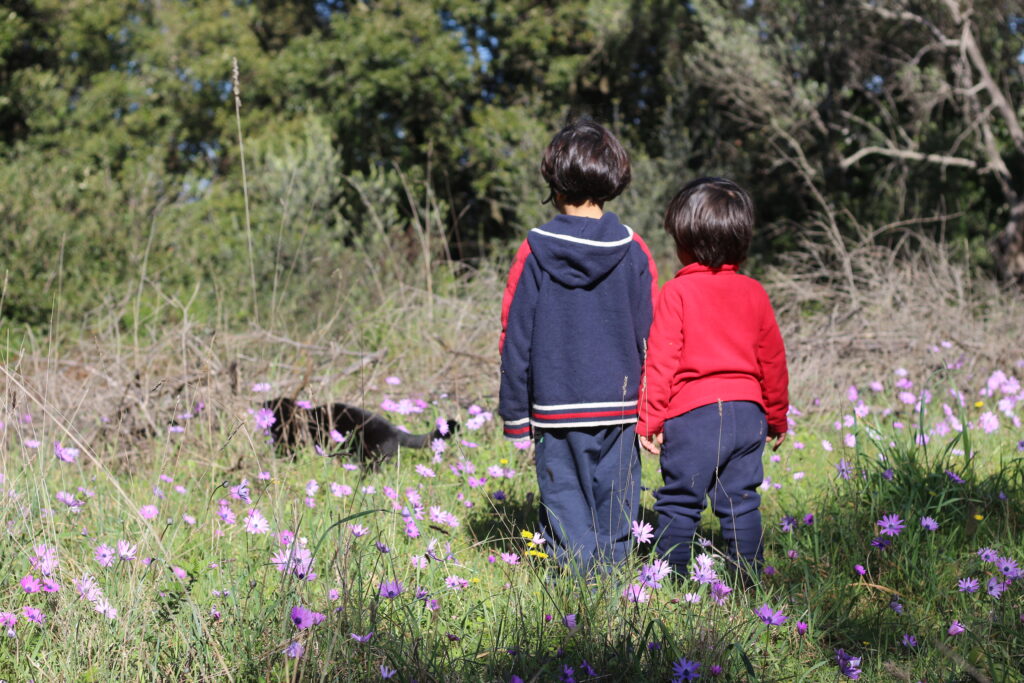
Our under 7 years old kids are fluent in 2 languages.
I often receive compliments from strangers on how amazing it is to see very young children being able to switch from one language to the other.
I had a clear goal in my life; to teach my mother tongue to my kids. Not only because I am aware of the benefits of knowing more than one language but also because I felt upset my Mother didn’t teach us her mother tongue, I didn’t want to make the same mistake.
According to BIG THINK ( and science ): “A great and growing body of research has focused on the psychological, economic, and health benefits of being bilingual. Speaking many languages improves a host of cognitive functions, across all stages of life, and it affects our emotional and social attitudes, as well. The scientific world is starting to take seriously the life-changing advantages of speaking multiple languages.” Check out the full article here: https://bigthink.com/neuropsych/10-benefits-bilingualism/
This is what FUTURLEARN says about being bilingual: “Bilingual people enjoy advantages: they have enriched cognitive control, it’s likely that they have improved metalinguistic awareness, as well as better memory, visual-spatial skills and even creativity.” check out the full article here: https://www.futurelearn.com/info/courses/multilingual-practices/0/steps/22658
It is not as hard as it seems. I often hear parents that they don’t know how to do it, or that they are the only parent who speaks that language, they can’t be bothered, etc. When my first child was born I was the only parent who spoke a foreign language and I didn’t know how to teach her. I tried a method that I wasn’t certain will give me success but by listening to my children today I can confidently say I succeeded in that regard.
I am not a language expert or a teacher, I am just a Mother who wants to give simple advice on how things worked well for us about teaching a foreign language. Here’s how I did it.
- SPEAK TO YOUR CHILD IN YOUR MOTHER TONGUE
When we had our first child we were living in the UK. I was the only parent who spoke Italian and we had zero Italian speakers around us. This didn’t stop me. Since she was born, I only and always spoke to her in Italian. I think this helped to create a strong foundation in her bilingual journey and also as a way to make our bonding stronger. Yes, is true babies don’t talk for at least the first 2 years, but they record everything you say to them, so whatever I was doing most of the time I would explain to her what was happening like “ Mum is brushing her teeth with a toothbrush” or maybe something like this “ I am going to cook our lunch now, what I need now is collecting all the ingredients, here’s the pasta, onion, olive oil, tomatoes” etc etc. I was talking to her a lot and well sooner than I expected we were having a proper conversation in Italian.
2. READ
I am a big fan of books. I always have a book next to my bed, and try to read before I sleep. Without books, I would feel empty. I think reading is essential for my well-being and I would like to pass on to them this passion. I have been reading to my children forever, I established a very solid routine, there is no day ( unless I am very unwell ) where I don’t read to them and of course, I read in Italian. I think reading aloud to them improved their vocabulary and made our bond stronger.
3. LISTEN
To improve their listening and understanding abilities I often play audio stories in Italian, there are plenty of them on YouTube and Spotify for free.
4. SHOWER THEM WITH COMPLIMENTS
We frequently praise them on how well-spoken they are. whenever they use complicated words we make a big deal out of it like when our 4 years old said to us “extraordinary’’ we acted like it was the best thing ever. I make them feel cool about how great is for young people like them to know 2 languages.
This is how I taught my children Italian.
I hope someone will find this article useful.
